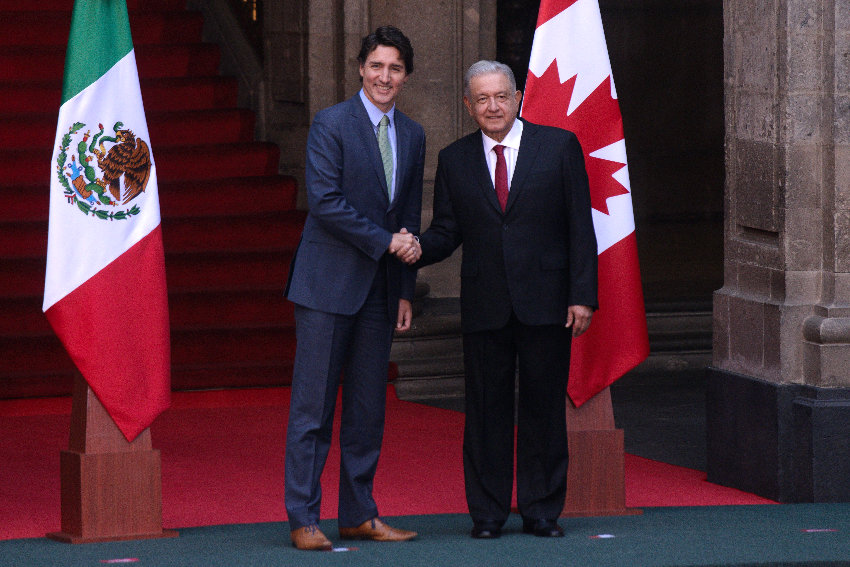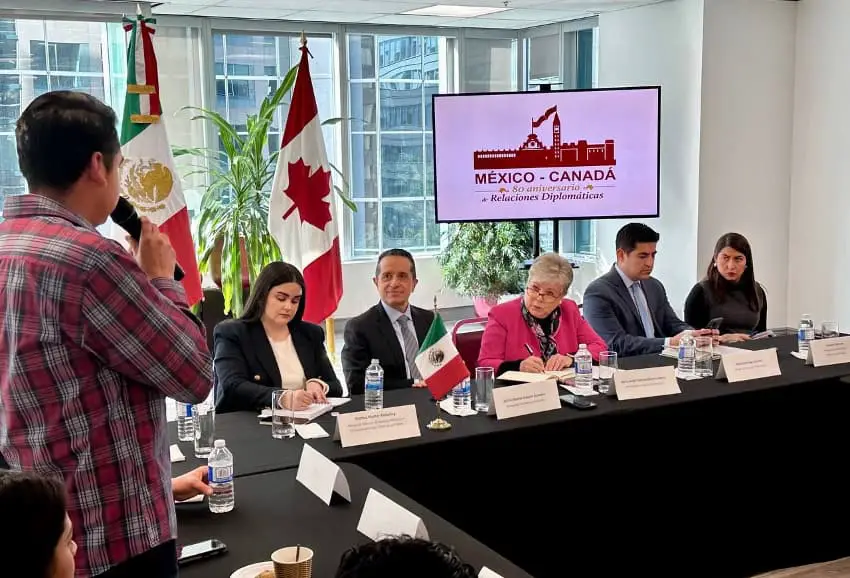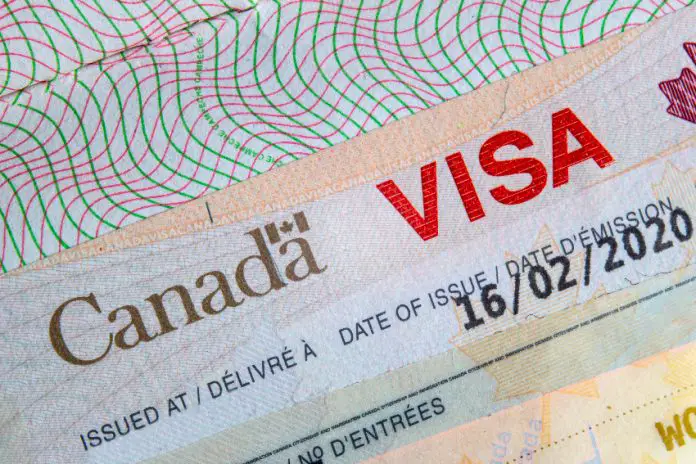The days of visa-free travel to Canada are coming to an end for some Mexican citizens — and the Mexican government isn’t happy about it.
The Canadian government announced Thursday that it is “adjusting its travel requirements for Mexican citizens,” a move that comes after the number of Mexicans seeking asylum in Canada increased markedly last year.

As of late Thursday, Mexicans with a valid non-immigrant visa for the United States or who have held a Canadian visa in the past decade will be able to fly into Canada without a visa for that country. But Mexicans who don’t meet the specified criteria will not.
“As of February 29, 2024, at 11:30 p.m. Eastern time, Mexican citizens who hold a valid US non-immigrant visa or have held a Canadian visa in the past 10 years and are traveling by air on a Mexican passport will be able to apply for an electronic travel authorization (eTA),” Immigration, Refugees and Citizenship Canada (IRCC), a government department, said in a news release.
“With the high number of Mexican citizens currently holding US visas, the majority will continue to enjoy visa-free travel to Canada. Those who do not meet these conditions will need to apply for a Canadian visitor visa,” the department said.
Visitor visas cost CAN $100 (US $74) and are issued by Canadian diplomatic posts in Mexico.
A partir de las 23:30 h de este jueves, los ciudadanos mexicanos deberán solicitar visa para ingresar a Canadá. Así lo confirmó el Ministro de Migración canadiense, Marc Miller.
Más, información, en: https://t.co/nRXhs6LcTY pic.twitter.com/JFWZOooJuD
— Joaquín López-Dóriga (@lopezdoriga) February 29, 2024
Canadian Immigration Minister Marc Miller made a video statement on the updated visa requirements
IRCC said that the decision to reinstate a visa requirement for some Mexican travelers “responds to an increase in asylum claims made by Mexican citizens that are refused, withdrawn or abandoned.”
“It is an important step to preserve mobility for hundreds of thousands of Mexican citizens, while also ensuring the sound management of our immigration and asylum systems,” the department said.
IRCC also said that “today’s action will relieve pressure on Canada’s borders, immigration system, housing and social services.”
It said that “asylum claims made by Mexican citizens reached a record high in 2023 at a time when Canada’s asylum system, housing and social services were already under significant pressure” and noted that “asylum claims from Mexican citizens accounted for 17% of all claims” last year.
Canada introduced a visa requirement for Mexican travelers in 2008 when Conservative Party primer minister Stephen Harper was in power. The requirement was scrapped in 2016, the year after current Prime Minister Justin Trudeau took office.
Before the official announcement on Thursday, senior Canadian officials indicated that the reimposition of a visa requirement was being considered.
Minister of Public Safety Dominic LeBlanc said in January that he and Immigration Minister Marc Miller were considering visas and other measures for Mexican nationals seeking to enter Canada.

Miller on Friday stressed that Mexico remains “an important partner to Canada” and highlighted that — despite the rule change — Canada “will continue to welcome Mexican temporary workers, students, visitors and immigrants who bring diverse skills and important contributions to our economy and communities.”
LeBlanc’s remark last month came after the premier of Quebec, Francois Legault, wrote to Trudeau to urge the prime minister to take action to address the flow of asylum seekers into Quebec.
Earlier this month, Trudeau said that his government was “in conversations with Mexico about making sure that the number of asylum seekers — some of them supported by organized crime in Mexico to come up to Canada — are reduced.”
President Andrés Manuel López Obrador acknowledged Canada’s concerns last week and said that the Mexican government was dealing with the issue. He denied that Mexican crime groups were sending people to Canada.
Apparently referring to the possible reinstatement of a visa requirement for Mexicans seeking to enter Canada, López Obrador said Feb 20. that the Canadians “don’t want to take a unilateral measure that could affect Mexico, and we thank them very much for that.”
His government’s attitude was not at all thankful on Thursday. The Ministry of Foreign Affairs (SRE) said in a statement that Mexico “regrets” the decision to reinstate the visa requirement for some Mexicans, “and believes that there were other options available before putting this measure in place.”
“Mexico reserves the right to act in reciprocity,” the SRE added, although a decision to impose a visa requirement for Canadians seeking to visit Mexico would seem unlikely given the importance of Canadians to the Mexican tourism sector.
Mexico News Daily
